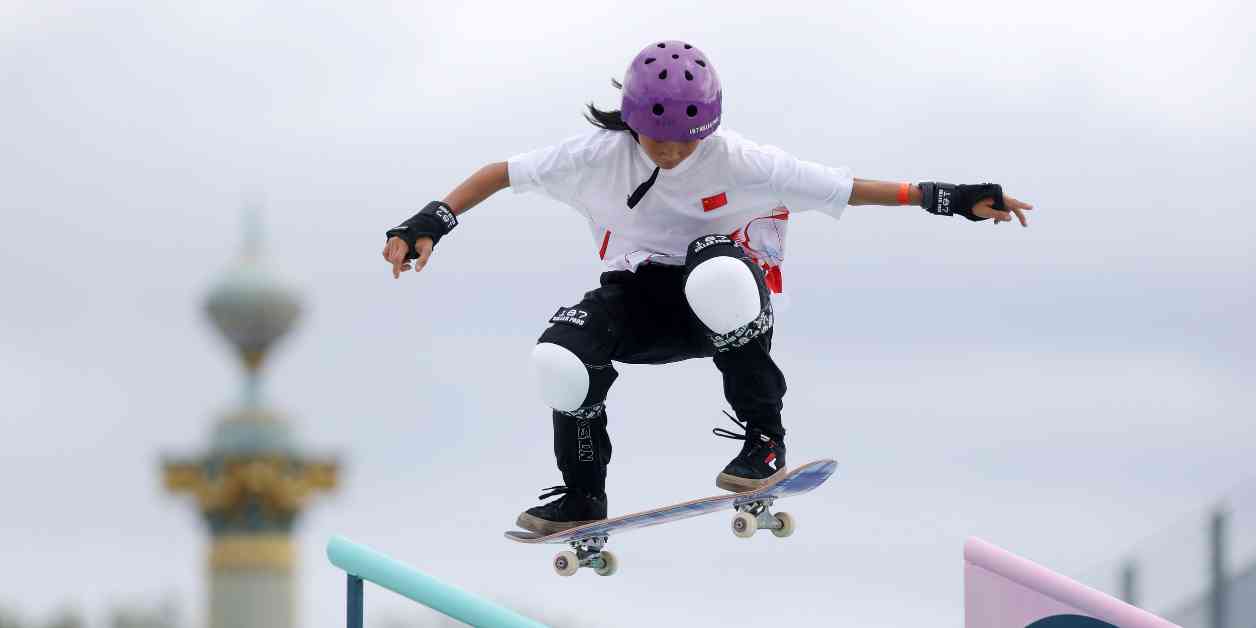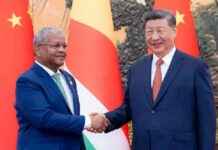China’s Skateboarding Evolution: From Rebels to Role Models
China has long been known for its powerhouse athletes in traditional sports like ping-pong, weightlifting, and swimming. However, in recent years, a new wave of athletes has emerged from an unexpected source – the world of skateboarding. The rise of young skateboarders like Cui Chenxi and Zheng Haohao has not only captured the attention of sports fans nationwide but also symbolized a significant shift in Chinese attitudes towards this once-maligned pastime.
A Growing Acceptance of Skateboarding in China
The acceptance of skateboarding as a mainstream sport in China is relatively young compared to other countries. Globally, skateboarding has often been associated with countercultural movements, particularly in the United States where it emerged as an anti-establishment expression and alternative lifestyle. Japan, despite producing world-class athletes like Yuto Horigome, still grapples with the perception of skateboarding as a public nuisance. This tension was evident at the Tokyo Olympics, where signs reading “Skating Banned” were displayed near the venue where Yuto won his gold medal.
In China, the early perception of skateboarding was one of curiosity rather than rebellion. While skaters in Western countries often faced resistance due to concerns about public order, Chinese skateboarders were met with curiosity from onlookers. However, as China’s economy boomed in the early 2000s, international sports brands saw an opportunity for growth and began investing in marketing and sponsorships, transforming skateboarding’s image from a niche subculture to a trendy lifestyle choice.
The Transformation of Skateboarding Culture in China
The evolution of skateboarding culture in China can be traced back to the early 1990s when the American film “Gleaming the Cube” introduced the sport to Chinese audiences. The film’s depiction of skateboarding legends like Tony Hawk and Rodney Mullen resonated with the era’s rebellious youth, who saw the sport as a way to deviate from China’s highly regimented education system. Initially, Chinese skaters were predominantly male and concentrated in wealthy megacities like Beijing, Shanghai, Shenzhen, and Guangzhou.
Despite the sport’s countercultural connotations, the commercialization of skateboarding in China gained momentum in the 2010s as companies like Nike, Adidas, and Vans hosted events that merged skateboarding with art, music, and photography. This shift in perception culminated in the 2022 Hangzhou Asian Games, where young athletes like Chen Ye and Cui Chenxi made history by becoming the youngest-ever gold medalists in Asian Games skateboarding.
Challenges and Opportunities in the Skateboarding Industry
While the sportification of skateboarding in China has brought financial stability to talented skaters through sponsorships and professional opportunities, it has also raised concerns among the core skateboarding community. When skateboarding was announced as an Olympic sport in 2016, many core skaters feared that its recognition would dilute the sport’s countercultural essence and replace them with athletes groomed through the state-run sport system.
However, as the years have passed, these concerns have gradually subsided as the expanded ecosystem created by Olympic recognition has opened up new opportunities within the industry. Former core skaters have transitioned into professional roles across various fields, from creative positions like photographers and videographers to technical roles such as skatepark designers and event managers. Skateboarding activities and competitions have also proliferated across China, with commercial projects incorporating skateparks into urban landscapes.
The Impact of Skateboarding on Chinese Youth Culture
Skateboarding’s growing popularity in China has not only reshaped the mainstream sports landscape but also challenged traditional notions of athletic development. Schools in urban areas have started incorporating skateboarding into physical education curricula, recognizing its potential for fostering skills like balance, coordination, and risk assessment. Moreover, skateboarding has cultivated an enthusiasm for sports among Chinese youth, bridging the gap between subculture and mainstream acceptance.
Looking Ahead: The Future of Skateboarding in China
As skateboarding continues to gain traction in China, the future of the sport looks promising. With increasing investment from major brands and a growing infrastructure of skateparks and events, skateboarding is poised to become a staple in Chinese sports culture. The journey from rebels to role models exemplifies the transformative power of skateboarding in China, paving the way for a new generation of athletes to make their mark on the global stage.
In conclusion, China’s skateboarding transformation reflects a broader shift in societal attitudes towards unconventional sports and self-expression. As the sport continues to evolve and gain mainstream acceptance, it serves as a testament to the resilience and creativity of Chinese youth. Skateboarding’s journey from the fringes to the forefront of Chinese sports culture is a testament to the power of perseverance, passion, and innovation.









![Indie music fans gather at l’Antipode for [Face B] Kool Things soirée on Saturday night news-15112024-105933](https://shanghainewstv.com/wp-content/uploads/2024/11/news-15112024-105933-218x150.jpg)







